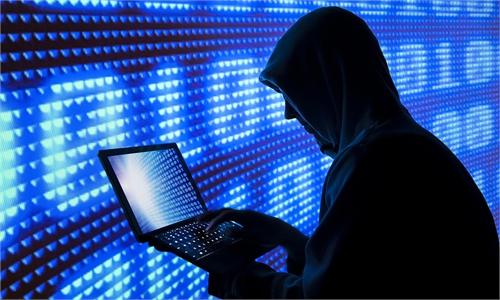Balancing development and security: China's counter-espionage is tough but imperative

Spy Photo: VCG
China's Ministry of State Security published its first article Tuesday on its newly established official WeChat account, entitled, "Countering espionage requires the mobilization of all members of society." The article caused a sensation and was soon followed by a second entitled "Punishing espionage according to the law and respecting and safeguarding human rights are equally important." I believe we should combine the two articles to fully understand the current situation we are facing and the actions we should take.China is now facing increasingly severe and complex situation in preventing espionage activities, as the country has become the primary target for intelligence gathering and subversive activities of the US and its main allies in the Asia-Pacific region. CIA director William Burns told the Aspen Security Forum late July arrogantly that the agency had "made progress" in rebuilding its spy networks in China. Raising awareness about counterintelligence and conducting a comprehensive mobilization and espionage education throughout society is necessary and essential.
Many of the competitions and struggles between modern major powers take place in the realm of information and intelligence. As the dedicated department responsible for national security, China's Ministry of State Security has the obligation to promote a continuous state of vigilance throughout society while conducting professional counter-espionage operations. This is aimed at consolidating the public foundation of anti-espionage efforts in China and increasing the cost and consequences for foreign espionage agencies, such as those from the US, to engage in illegal intelligence collection activities in China.
At the same time, as emphasized in the second article released by China's Ministry of State Security, it is crucial to both respect and safeguard human rights and lawfully punish espionage activities. The purpose of involving the whole society in counter-espionage is not to become a "mass movement to catch spies." Public participation in counterintelligence and espionage prevention should strictly follow legal channels. Any individuals or incidents suspected of espionage must be rigorously identified by the Ministry of State Security and handled in accordance with the law. All individuals involved in alleged espionage activities should go through the judicial process to ensure that justice is served.
The task of counter-espionage in China is destined to become increasingly heavy. However, China cannot and will not close its doors for the sake of security. The policy of opening up to the outside world must remain resolute and encompass a broader scope. China must have the ability to balance and manage various risks associated with this approach. Currently, Western public opinion propagates that "foreign personnel in China are becoming increasingly unsafe." We must use concrete actions to prove the absurdity of such propaganda. To combat espionage and avoid infiltration, our community must work with the security agency. At the same time, we must vigorously oppose any unwarranted restraints on foreign staff and avoid interfering with or limiting their usual operations. We must also firmly condemn false allegations and the exploitation of espionage charges to do harm to others. We seek true national security, and any extreme or disruptive activities are incompatible with this purpose.
China is a huge country that has become the US' primary target for sabotage. We require national security and robust growth, both essential to the core interests of the country. In terms of national security, China must be a rock-solid fortress, making it hard for the US to weaken us. At the same time, China must also be an open, dynamic and liberal society, full of inventiveness and the capacity to balance complicated circumstances. This is all essential for China to retain its momentum at a greater level.
Is this difficult? Yes, being a growing major power is difficult. When we feel that balancing progress is incredibly tough, it indicates that we are making progress and moving onto a bigger stage.
The author is a Chinese media professional. opinion@globaltimes.com.cn




